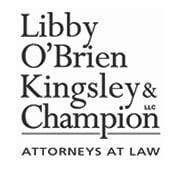By citizen’s initiative, Maine voters approved the Marijuana Legalization Act in November 2016. As originally enacted, the law prohibited employers from refusing to hire or penalizing applicants or employees for off-site marijuana use. In 2018, the Maine Legislature passed L.D. 1719, “An Act to Implement a Regulatory Structure for Adult Use Marijuana.” The Governor vetoed… Read more »
Don’t let the tail of the increased federal exemption wag the estate planning dog
On December 22, 2017 the President signed the TAX CUT AND JOBS ACT (The “Act”) that became effective January 1, 2018. For estate tax purposes and for estate tax planning purposes, the Act essentially doubled the federal estate, gift, and generation-skipping transfer tax exemptions through the end of 2025. This means that as of January… Read more »
Maine’s bountiful seaweed. Who owns it?
A recent Maine case, Ross v. Acadian Seaplants, has made national news. The subject of this legal battle? Ownership of seaweed. Acadian Seaplants, Ltd., a Nova Scotian company, has appealed from a decision of a justice of the Maine Superior Court, which ruled in favor of two property owners that own waterfront property in Washington… Read more »
Penalties for Drunk Driving (OUI) in Maine: Comprehensive Guide
Updated – Revised August 2025 Operating Under the Influence (OUI) Defined In Maine, driving while impaired is referred to as Operating Under the Influence (OUI). A driver may face an OUI charge if operating with a BAC of 0.08% or more, or with any level of impairment evident—“mental or physical faculties… impaired however slightly.” Dual… Read more »
Valuation of businesses in divorce: personal goodwill and enterprise goodwill
A business’s goodwill consists of its “reputation, patronage, and other intangible assets that are considered when appraising the business.” Black’s Law Dictionary 703 (7th ed. 1999). Under Maine law, enterprise goodwill is quantifiable property subject to equitable distribution by the court. Ahern v. Ahern, 2008 ME 1, ¶ 14, 938 A.2d 35. Personal goodwill, in contrast, “is… Read more »
New federal law targets elder abuse and exploitation
According to a report by Rhonda McMillion, an editor of the ABA (American Bar Association) Washington Letter, a publication of the ABA Governmental Affairs Office, a new federal law championed by the ABA will fight elder abuse and exploitation. The report, which appeared in the December 2017 issue of the ABA Journal, notes the following:… Read more »
Gene Libby selected for inclusion in the Best Lawyers in America
Gene R. Libby, a founding partner of Libby O’Brien Kingsley & Champion, LLC, has been selected again for inclusion in the most recent edition of The Best Lawyers in America®. Gene was selected to appear in the 24th edition of Best Lawyers (2018) for the practice areas of family law and white collar criminal defense.… Read more »
Commericial property valuations in divorce litigation
Commercial property valuation is a more complicated and much more expensive process than appraising residential real estate. Depending on the type of property, commercial appraisals can run between $2,500 to $15,000. The cost will vary based on the size, nature, and complexity of the property involved. Like residential appraisers, commercial appraisers follow standards set forth… Read more »
Attorney Tyler Smith successfully argues “rising blood alcohol” defense in OUI case
Representing a client in a hearing before the Maine Bureau of Motor Vehicles, Attorney Tyler Smith successfully argued a “rising blood alcohol” defense in an operating under the influence case. Our client was allegedly witnessed consuming alcohol in a parking lot. The witness called the police, who promptly responded and stopped the client after he… Read more »
Massachusetts Supreme Judicial Court issues ruling on employee use of medical marijuana
The Massachusetts Supreme Judicial Court recently decided that employees of Massachusetts corporations and of out-of-state corporations doing business with operations in Massachusetts are permitted to use medical marijuana and cannot be fired for failing a drug test due to medical marijuana usage. On July 17, 2017, the Massachusetts Supreme Judicial Court in the case of… Read more »
